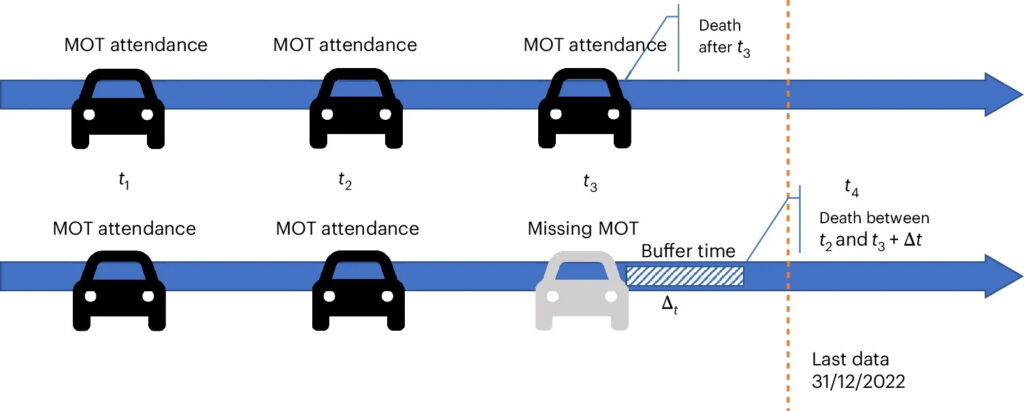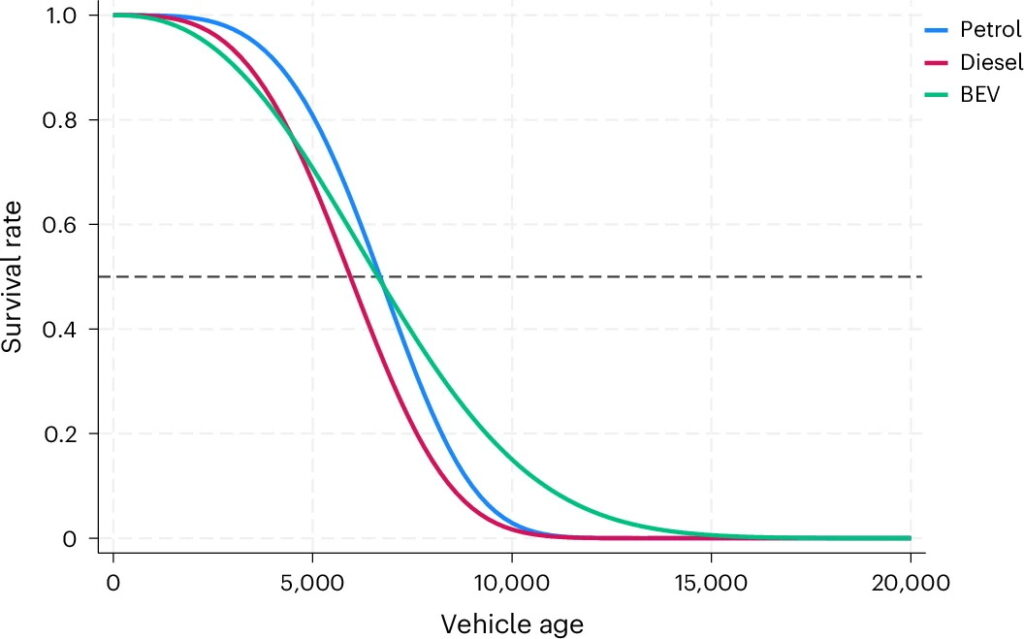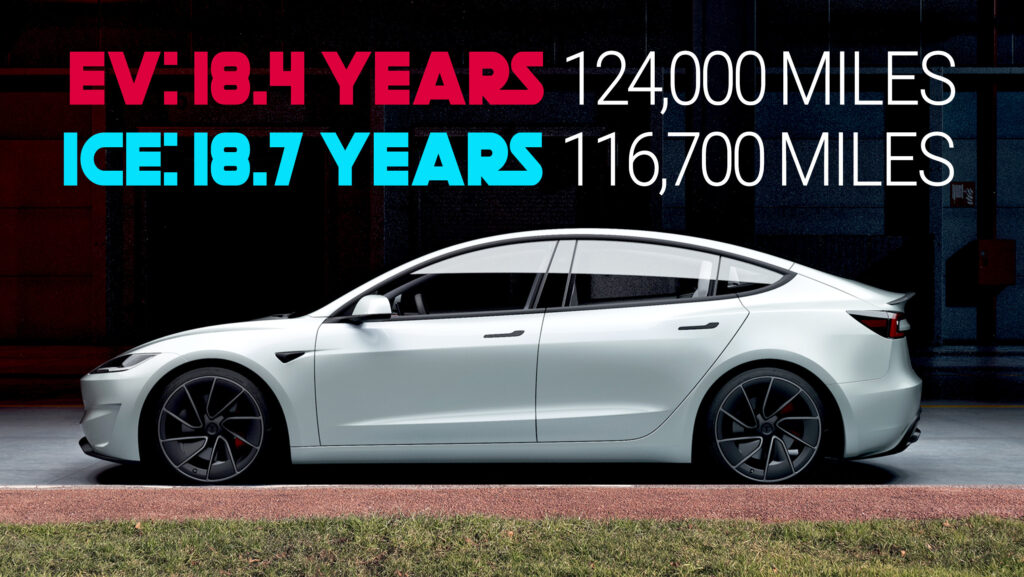- A new major study from UK researchers shows EVs can last as long as, if not longer than, ICE cars.
- In addition, it appears as though EVs offer more rapid improvements in reliability over gas cars.
- Though promising, the study’s data comes with caveats that require careful consideration.
Electric vehicles can now last just as long and often be more reliable than comparable ICE cars. That’s the conclusion of a new multi-national study conducted by researchers from the University of Birmingham and the London School of Economics (LSE), which analyzed over 300 million records, including data from 30 million cars.
Published in the journal Nature Energy, the findings are an interesting indication of just how far EV technology has come. Even so, the researchers caution that further study is needed to fully understand the long-term potential of these vehicles.
The study leveraged anonymized MOT test data from Great Britain for its main data set. This enabled the researchers to look at records from 2005 through 2022. Those records are detailed enough that they could infer when a car’s life ended and what type of powertrain each one used.
More: Are EVs Safer Than ICEs? Australian Crash Safety Body Has The Answer
In short, the peer-reviewed study found that early EVs struggled to last as long as ICE cars but at this point, they’ve already caught up. “While BEVs represent a newer technology that was traditionally less reliable, they have rapidly evolved, with the latest BEVs expected to outlast the average ICEVs within the same cohort,” the study said.
Faster Gains for EVs Than ICE Cars
One of the standout findings from the research is how quickly battery electric vehicles have improved in terms of reliability. The study found that, for every year of production, the likelihood of failure dropped by 12%, a figure that’s notably higher than the 6.7% improvement for gas engine vehicles and a mere 1.9% for diesels. In other words, if you’re considering a BEV, the chances of it not breaking down are dramatically higher with each newer model, making those early EV hiccups seem like a distant memory.
Co-author Dr Viet Nguyen-Tien from the LSE, said: “Our findings provide critical insights into the lifespan and environmental impact of electric vehicles. No longer just a niche option, BEVs are a viable and sustainable alternative to traditional vehicles – a significant step towards achieving a net-zero carbon future.”

Co-author Robert Elliott, Professor of Economics at Birmingham University, addd: “BEVs offer significant environmental benefits, especially as Europe switches to a more renewable energy mix. Despite higher initial emissions from production, a long-lasting electric vehicle can quickly offset its carbon footprint, contributing to the fight against climate change – making them a more sustainable long-term option.”
How Do Modern EVs Compare?
To quantify the progress, the researchers provided some hard numbers. A modern BEV now boasts an average lifespan of 18.4 years and can cover 124,000 miles (200,000) before calling it quits. This mileage not only matches but surpasses the average for petrol-powered cars.
For comparison, petrol cars typically have a slightly longer lifespan, averaging 18.7 years, but they cover fewer miles, around 116,000 (187,000 km) on average. Diesel cars, by contrast, have a shorter lifespan of 16.3 years but compensate with significantly higher mileage, often reaching about 255,000 miles (410,000 km) before retiring. These, of course, are averages, so, as the saying goes, your mileage may vary—yes, we know about your Japanese SUV that’s sailed past 300,000 miles without a hiccup.
Challenges Ahead
At the same time, they acknowledge that the community needs to continue researching the topic. For one thing, we’re still somewhat in the early days of the EV transition. We still don’t know how modern mainstream EVs will fare 20 or 30 years down the road.
In addition, battery replacement costs are still exponentially higher than similar component replacements in ICE cars. Finally, the researchers admit that some of the data included by the MOT could be faulty or flawed because of how they are recorded. In any case, it’s interesting to see that EVs are making the type of rapid progress needed to put them into the same realm as ICE-powered vehicles on the road today.





